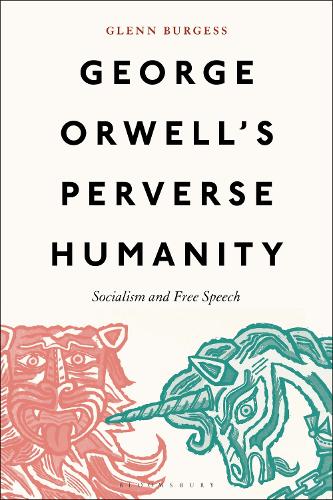
George Orwell's Perverse Humanity: Socialism and Free Speech
(Paperback)
Available Formats
Publishing Details
George Orwell's Perverse Humanity: Socialism and Free Speech
By (Author) Glenn Burgess
Bloomsbury Publishing PLC
Bloomsbury Academic USA
29th June 2023
United States
Classifications
Tertiary Education
Non Fiction
Literary studies: c 1900 to c 2000
Biography: writers
Human rights, civil rights
823.912
Physical Properties
Paperback
280
Width 228mm, Height 154mm, Spine 24mm
439g
Description
This is the first book to focus primarily on George Orwells ideas about free speech and related matters freedom of the press, the writers freedom of expression, honesty and truthfulness and, in particular, the ways in which they are linked to his political vision of socialism. Orwell is today claimed by the Left and Right, by neo-conservatives and neo-socialists. How is that possible Part of the answer, as Glenn Burgess reveals, is that Orwell was an odd sort of socialist. The development of Orwells socialism was, from the start, conditioned by his individualist and liberal commitments. The hopes he attached to socialism were for a fairer, more equal world that would permit human freedom and individuality to flourish, completing, not destroying, the work of liberalism. Freedom of thought was a central part of this, and its defence and use were essential parts of the struggle to ensure that socialism developed in a liberal, humane form that did not follow the totalitarian path of Soviet communism. Written in celebration of Orwells dictum, 'We hold that the most perverse human being is more interesting than the most orthodox gramophone record,' George Orwell's Perverse Humanity is a portrait of Orwell that captures these themes and provides a new understanding of him as a political thinker and activist. Based on archival research and new materials that affirm his work as an activist for freedom, it also uncovers a socialist ideology that has been obscured in just the way that the author feared it would be associated in many peoples minds with totalitarian unfreedom.
Reviews
Glenn Burgess has written with great perception about how intensely Orwell valued free speech and how determined he was to defend it. This study makes us vividly aware of aspects of Orwell, particularly his activism, that have been hitherto comparatively neglected. It will be read with great interest by the many who wish to know more about and understand better a writer whose impact has continued to grow over the years. * Peter Stansky, Professor Emeritus of History, Stanford University, USA, and author of The Socialist Patriot: George Orwell and War *
Glenn Burgess synthesizes a massive number of primary and secondary texts and constructs an original and clear argument around them on a vitally important area namely Orwells ideas about socialism, free speech, freedom of thought, press freedom and censorship. It amounts to an important and fascinating addition to Orwellian scholarship. * Richard Lance Keeble, Professor of Journalism, University of Lincoln, UK *
Author Bio
Glenn Burgess is Professor of History at the University of Hull, UK. He is the author of The Politics of the Ancient Constitution: An Introduction to English Political Thought 1603-1642 (1992); Absolute Monarchy and the Stuart Constitution (1996); British Political Thought 1500-1660 (2009); and many articles, essays and edited collections.
